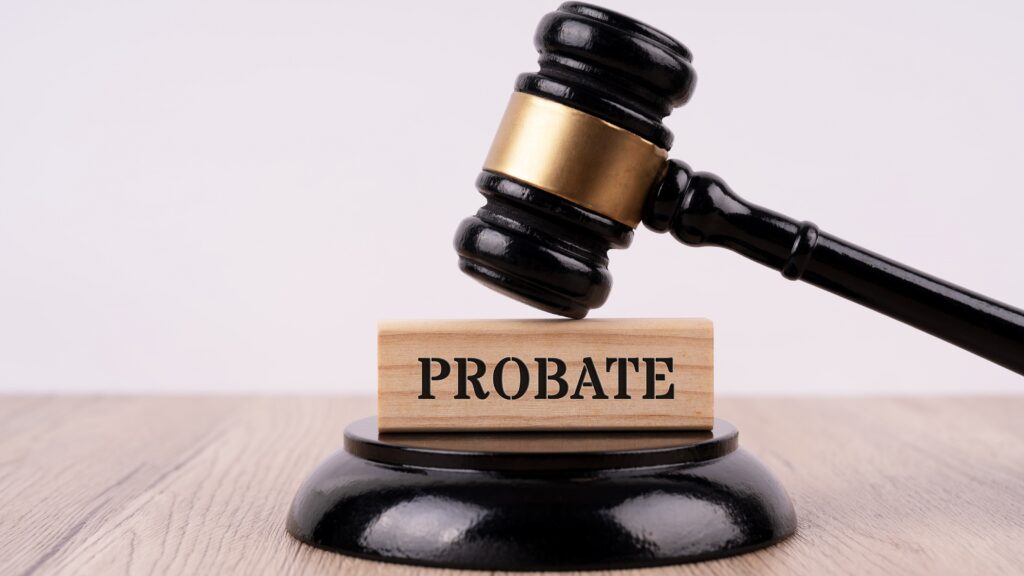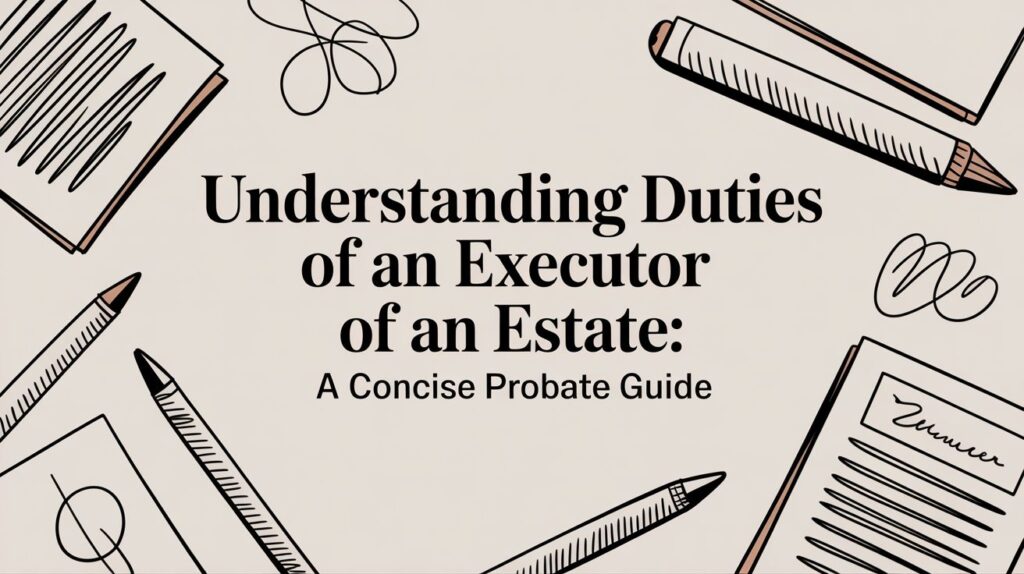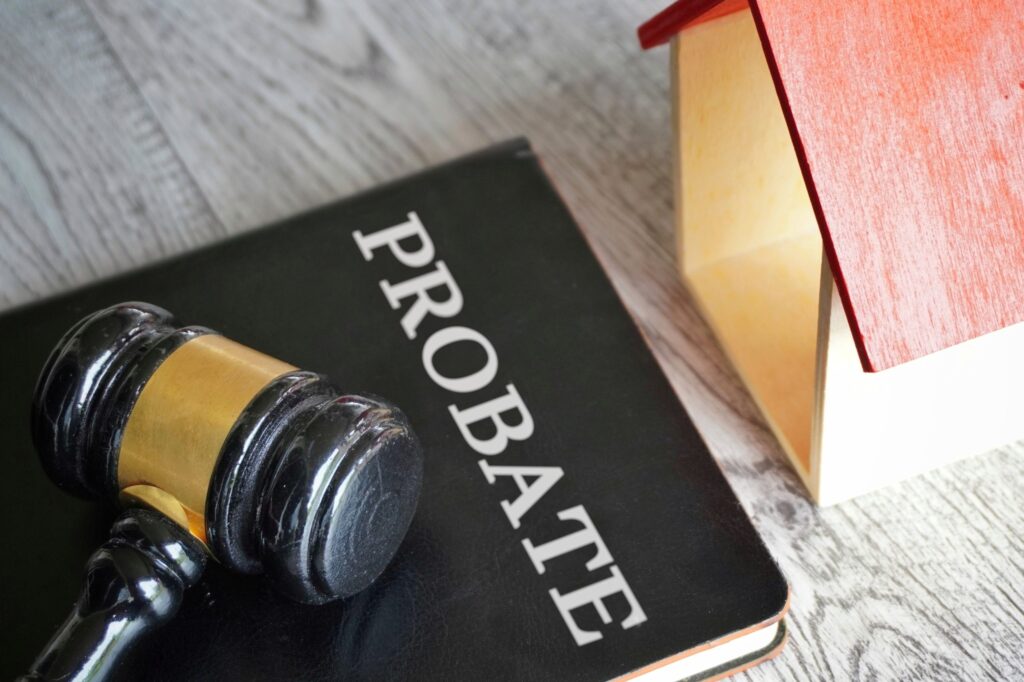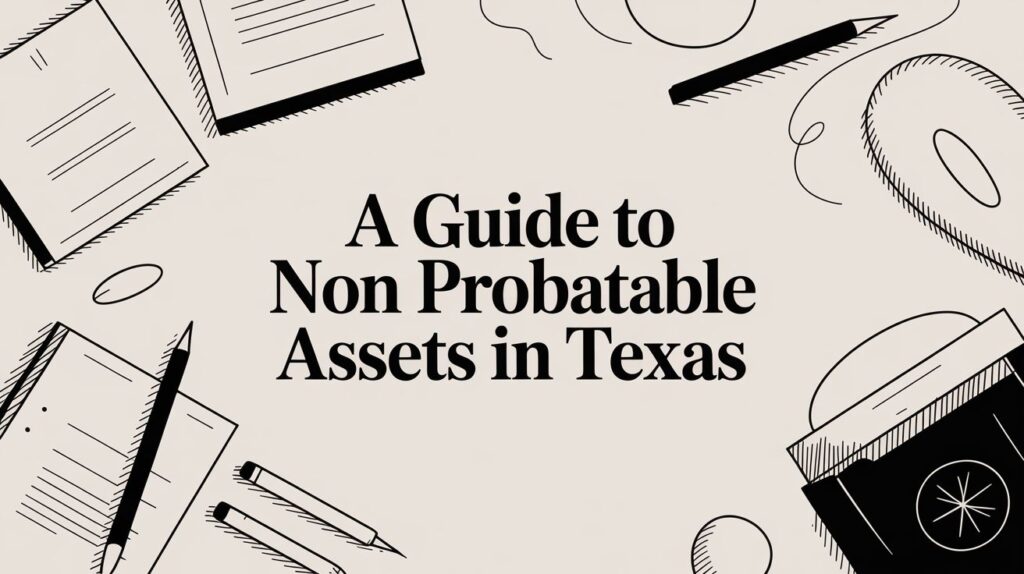Divorce is the end of a marriage, but not necessarily the end of legal ties. This is especially true when it comes to estate planning. Many people mistakenly believe that once they divorce, they’re automatically free of their ex in every legal sense. But when it comes to probate and inheritance law in Texas, the story is more complicated. One oversight in your estate plan, or a misunderstanding of how Texas law treats divorced couples, can result in your ex receiving part of your estate after your death. Whether you’ve recently ended a marriage or simply haven’t updated your documents in a while, understanding what really happens to your estate after divorce is critical. This article explores how Texas probate law handles post-divorce inheritances, what assets might still be vulnerable, and what steps you should take to prevent unwanted surprises after you’re gone.
Texas Is a Community Property State—And That Matters

Texas is one of nine community property states in the U.S., which means that any property acquired during the marriage is generally considered equally owned by both spouses. This includes income, real estate, retirement accounts, and even certain business assets. However, once you finalize a divorce, that property is divided between the two parties either through mutual agreement or court order.
While divorce officially ends the marital relationship and divides property, it doesn’t automatically rewrite your estate plan. Wills, trusts, retirement beneficiaries, and insurance policies you set up during the marriage may still reflect your former spouse’s name—unless you’ve taken proactive steps to update them.
Does Divorce Automatically Revoke a Will in Texas?
Here’s where it gets tricky. Under Texas law, if your will names your spouse as a beneficiary and you later get divorced, the law treats your former spouse as though they died before you—meaning they generally won’t inherit under your will unless the will explicitly states otherwise. This legal principle is known as “revocation by divorce.”
This rule also applies to any provisions that name your ex-spouse as executor or trustee. So, if you wrote a will during your marriage and named your spouse as your executor or a major beneficiary, divorce automatically cancels those designations—at least in theory.
However, this revocation applies only to wills. If you’ve designated your ex as a beneficiary on a life insurance policy, retirement account, or payable-on-death bank account, those designations may still be legally valid unless you update them. These types of assets pass outside of probate, which means the probate court does not get to apply its usual interpretation of your post-divorce intentions.
Non-Probate Assets: Where the Danger Lies
Probate assets are those that pass through your will and are subject to court supervision. These typically include real estate, personal property, and financial accounts held in your name alone. But many assets bypass probate altogether and are transferred directly to a named beneficiary.
This is where many divorced individuals unknowingly leave the door open for their ex. If you forgot to change the beneficiary on your 401(k), IRA, or life insurance policy, those assets might still legally pass to your ex-spouse—even if you’ve been divorced for years. Courts in Texas often uphold these designations unless there is clear evidence that you intended otherwise.
In fact, the U.S. Supreme Court has ruled in favor of ex-spouses in several inheritance cases involving outdated beneficiary forms. Even when state law tried to block an ex-spouse from receiving a payout, federal law governing certain accounts (like pensions and retirement plans under ERISA) took precedence and allowed the ex to collect.
That means if your employer-sponsored retirement plan or military benefits still list your ex, your estate plan may not matter.
What Happens If You Die Without a Will After Divorce?
If you pass away without a valid will in Texas, the state’s intestacy laws determine who inherits your estate. These laws prioritize your closest living relatives, starting with your spouse, children, and parents. If you are divorced and have children, your ex does not directly inherit anything. Your estate would generally pass to your children. However, complications can arise if your children are minors. In that case, your ex—the other parent—may be appointed by the court to manage the children’s inheritance on their behalf until they come of age.
This can be an unsettling idea for many people. Even if your ex has no legal right to the property, they may still gain significant influence over how that property is managed if they are acting as a legal guardian for your children’s estate. In effect, your ex could end up controlling a portion of your estate, at least temporarily.
If you have no children, your assets will likely go to your parents, siblings, or other relatives, depending on who survives you. Again, your ex is excluded by default, but that doesn’t mean they won’t have some influence—especially if your property is still entangled with theirs due to an incomplete property division during the divorce.
Property Division After Divorce: A Delayed Clean Break
Many divorces result in property settlement agreements, but not all of them are executed perfectly. If, for instance, you were awarded a house in the divorce, but your ex’s name remains on the deed or mortgage, it may not be entirely clear who owns what after your death.

In Texas, title ownership matters. If you die with an asset that’s still jointly titled with your ex—even if the divorce decree awarded it to you—your estate may have to deal with disputes, delays, or even unintended consequences.The surviving joint owner could claim full ownership depending on how the asset was titled.
That’s why it’s critical to follow through after your divorce. Retitle property, refinance mortgages, update insurance policies, and reassign business interests. Failing to do so doesn’t just make things messier for your heirs—it could also enrich someone you didn’t intend to benefit.
Trusts, Prenups, and Divorce Agreements: Do They Hold Up?
In some cases, couples use trusts, prenuptial agreements, or divorce decrees to outline exactly how their property should be handled after death. While these documents can be powerful tools, their effectiveness often depends on how well they are written and whether they comply with state law.
A prenuptial agreement might state that neither spouse can claim the other’s estate after divorce. A divorce decree may include waivers of beneficiary rights. A trust might remove the ex entirely from inheritance. But again, unless beneficiary designations and titles are properly updated to reflect those agreements, there can be legal tension between what you intended and what the paperwork actually says.
It’s not enough to assume that the court will piece things together after your death. If there’s a conflict between your divorce decree and the beneficiary form on your life insurance policy, the latter could prevail. That’s why thorough estate planning post-divorce is essential.
Estate Planning After Divorce: A Necessary Step, Not a Bonus
If you’ve been through a divorce in Texas, you need to revisit your estate plan—period. It’s not just about cutting your ex out. It’s about making sure your true intentions are followed and that your estate doesn’t end up in a legal gray area where your family is left to argue, interpret, or clean up the mess.
Updating your estate plan means revising your will, updating all beneficiary forms, re-titling property, and re-evaluating who you trust to act as executor, trustee, or power of attorney. These steps are especially important if you’ve remarried, had more children, started a business, or acquired new assets.
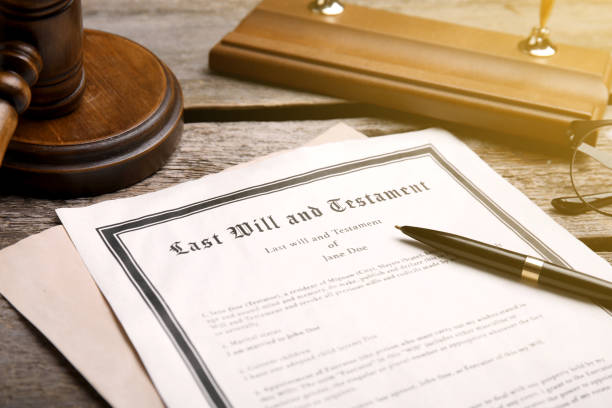
Even if your estate is small, the impact of failing to update your plan can be enormous. Probate courts are limited by what’s in writing. They can’t honor intentions that were never formally recorded.
The Bottom Line
In Texas, divorce ends the marriage but doesn’t automatically sever every financial or legal tie—especially when it comes to probate. While state law provides some safeguards, like revoking will provisions that benefit an ex-spouse, it doesn’t cover everything. Non-probate assets, outdated beneficiary designations, and tangled property titles can all result in your ex receiving part of your estate despite your divorce.
The only way to fully protect your estate from going to an ex-spouse is through meticulous and proactive estate planning. That means updating your will, changing your beneficiaries, and working with a knowledgeable probate or estate planning attorney who understands the nuances of Texas law. Don’t assume that time or divorce alone will erase your ex from your legal life. If you want to make sure your estate benefits the people you care about most—and not someone you’ve legally left behind—take the time now to make your intentions clear and binding.



